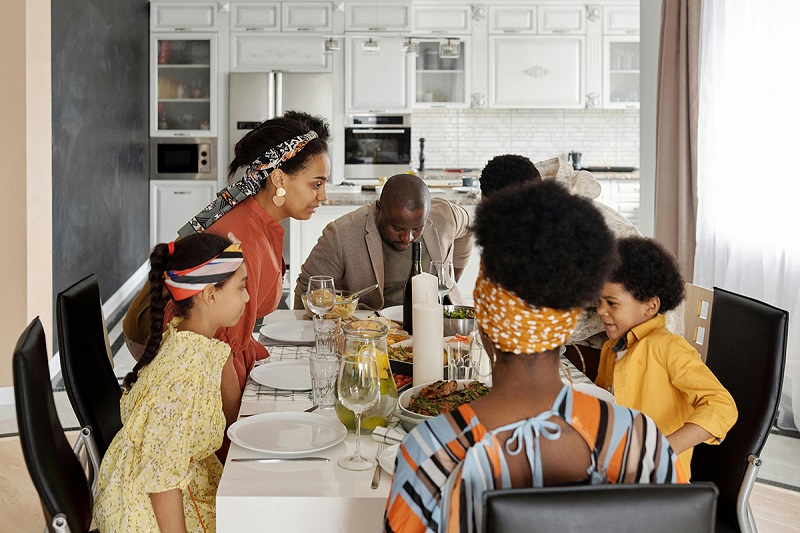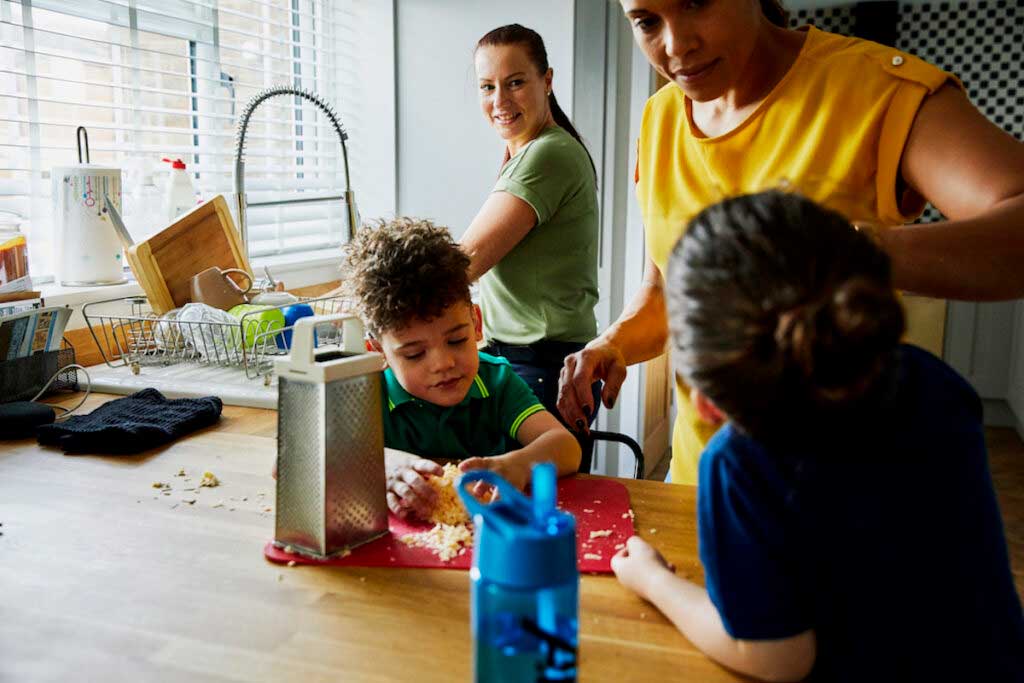How important is it to have family dinner with a 2-year-old? She eats early and it’s hard to cook after work and still feed her on time, so we serve her leftovers from the night before and eat when she goes to bed.
—Allison
One time, long ago — before I had any children — I remember discussing the value of family dinner with a colleague. You have to have family dinner, he told me. Otherwise, your children will turn out to be serial killers. Although, obviously, he understood this was not technically true, it was also very clear from this conversation that while serial killer might be off the table, he was very, very sure that family dinner was a key to success.
My own parents prioritized family dinner (6 p.m., every night) and treated it as sacrosanct. And I have done the same with my family. But as my kids have gotten older, it has gotten harder. In the week I am writing this, we are missing out on three family dinners (two cross-country meets, one violin lesson). Even though this is a very top priority for my family, the reality of life with older kids makes it challenging. Even with younger kids, it can be very hard. They need to eat early, adults may work late; they are terrible at sitting still for dinner, which makes it unpleasant and stressful, and on and on.

And yet: serial killers.
What does the data really say here? Is family dinner as important as my friend believed, or is there something else going on? And how can we make it work for our families?
Data on family dinner
There is a tremendous amount of data showing an association between regular family meals and better outcomes for kids, especially older kids. An example study — published back in 2006 — surveyed 100,000 kids in 6th through 12th grades about their family meal frequency as well as a whole host of behavioral outcomes.
Kids in this study who had more family dinners had better outcomes on basically every metric: less alcohol and tobacco use, less chance of being sexually active, less suicide risk, fewer school problems, more achievement motivation, more school engagement, fewer eating disorders, etc., etc.
The core issue with the study, of course, is that family meals are by no means the only thing that differs across families. And indeed, the relationships in the data are much smaller once the researchers adjust for other differences across families.
This same pattern — very consistent positive effects but unclear causality — is echoed across many other studies and reviews (like this one). The literature is simultaneously overwhelming, in the sense that the impacts are so consistent and strong, and underwhelming, in the sense that the causality is so weak.
Why is this so hard?
If we want to establish a causal relationship between two things — in this case, if we want to say that eating family meals causes better outcomes — we need for there to be some effectively random variation in the eating of family meals. It’s not that we necessarily need a randomized trial (although that would be great), but we need to be able to argue that we can isolate some randomness in the family meal decision.
The problem is that consistently choosing to have family meals is deeply ingrained in so many other parts of life that it is very difficult to think about it happening by chance. In fact, it is so ingrained that even in a randomized trial, it is hard to study. This trial aimed to impact the food-related behavior for a population of low-income families. Although it had some positive impacts on food consumption, it did not have any impact on family dinners.
This is to say: it’s not that the study didn’t find an impact of family meals. It’s that it could not even get family meals to happen.
Fundamentally: isolating family meals from the demographics, circumstances, and preferences that make them something families do or do not do seems like a fool’s errand. I am not optimistic we will ever know the answer.
Where does this leave us?
Two things that may seem only vaguely related to this discussion but, in fact, I believe are key:
First, there are a lot of pieces of evidence that show us that parental involvement in kids’ lives matters. This can certainly go too far, but when we look at (say) resilience to bullying, families contribute to that by providing a stable place where their kid feels accepted. With adolescents and teenagers, it can be hard to engage them, but they do need us to be there sometimes. Meaning, there is value in making sure we have some plan to (basically) force contact with us.
Second, there is some evidence that taste for particular foods is influenced by childhood; kids’ dietary preferences are more malleable than adults. Childhood is a time in which we have some possible influence in how our kids think about food and eating.
In my view, to the extent that family meals do have a causal impact — which I do think is very plausible, if not obviously shown by the data — I think it is because they are a way to deliver on these two goals. By sitting and eating with our kids, we both ensure a time that they are forced to see us and we are able to expose them to various foods and to the idea that food is meant to be enjoyed.
It is not, however, the only way to deliver on those goals. Focused connection time could be later in the evening, could be in the car on the way to practice, could be on the weekends. Food exposure can be achieved in a lot of different ways.
This is a place where the ideas I talk about in The Family Firm come up very directly. If you want to make sure you’ll have focused time to talk with your kid, especially as they get older and busier, you need to plan it. If it isn’t dinner, find another time to put it on the calendar. Tell them to expect it, even if they do not want to.
For us, dinner is a good time for this, but that’s largely because of how our jobs work and how we’ve thought about the kids’ schedules. But what works for me may not work for you, which is sort of the core message of ParentData.
The bottom line
- There is a strong correlation between family meals and positive outcomes, especially for adolescents.
- Arguments for causality are extremely difficult to make, given the enormous differences across families that do and do not have family meals.
- If family meals do matter, it is probably because they provide an opportunity for focused family time. It is worth prioritizing that, even if it is not at meals.
















Log in
When I was in middle and high school, family dinners also became harder and harder for us. My mom switched it and we had family breakfast together every morning before school. Now that I’m a mom, I realize what an effort she made for us to have a hot breakfast most days (some days it was a choice of cereal).
This is extremely important to us for numerous reasons. Parents shouldn’t kill themselves over it though. Dinner time (yes even with a 2 year old) is an invaluable opportunity to have dedicated time as a family. It also improves their eating habits (we all try what is on our plates) as well as table manners for eating out at restaurants. Our kid is flat out the best eater of all his friends and has the best manners and attention span at a table- the only differentiator is we sit down together every single night. Is it work – yes. Is it worth it – yes.
This is my “willing to die on this hill” subject. Seated family dinners are not the be all and end all and there are much more important aspects that contribute to your child’s development. I feel like this idea that all children of all ages must sit with their parents at meal times is just universally accepted as crucial when in reality it is completely situational. Eating together at meals times will not save an otherwise toxic upbringing, equally a thriving child’s success is not dependable on if they sat at a table and said their favourite part of the day. I wish there was more discourse on this but it seems to be stuck in this good/bad parenting dichotomy that most other aspects of parenting have moved past.
Just want to suggest reading Jenny Rosenstrach’s book Dinner: A Love Story! It’s based on her blog, but given the poster’s question, I suggest the book! It’s a really fun read, and will make you feel better about family dinner at different stages of child-raising. It’s also a cookbook but I enjoyed the memoir parts the most.